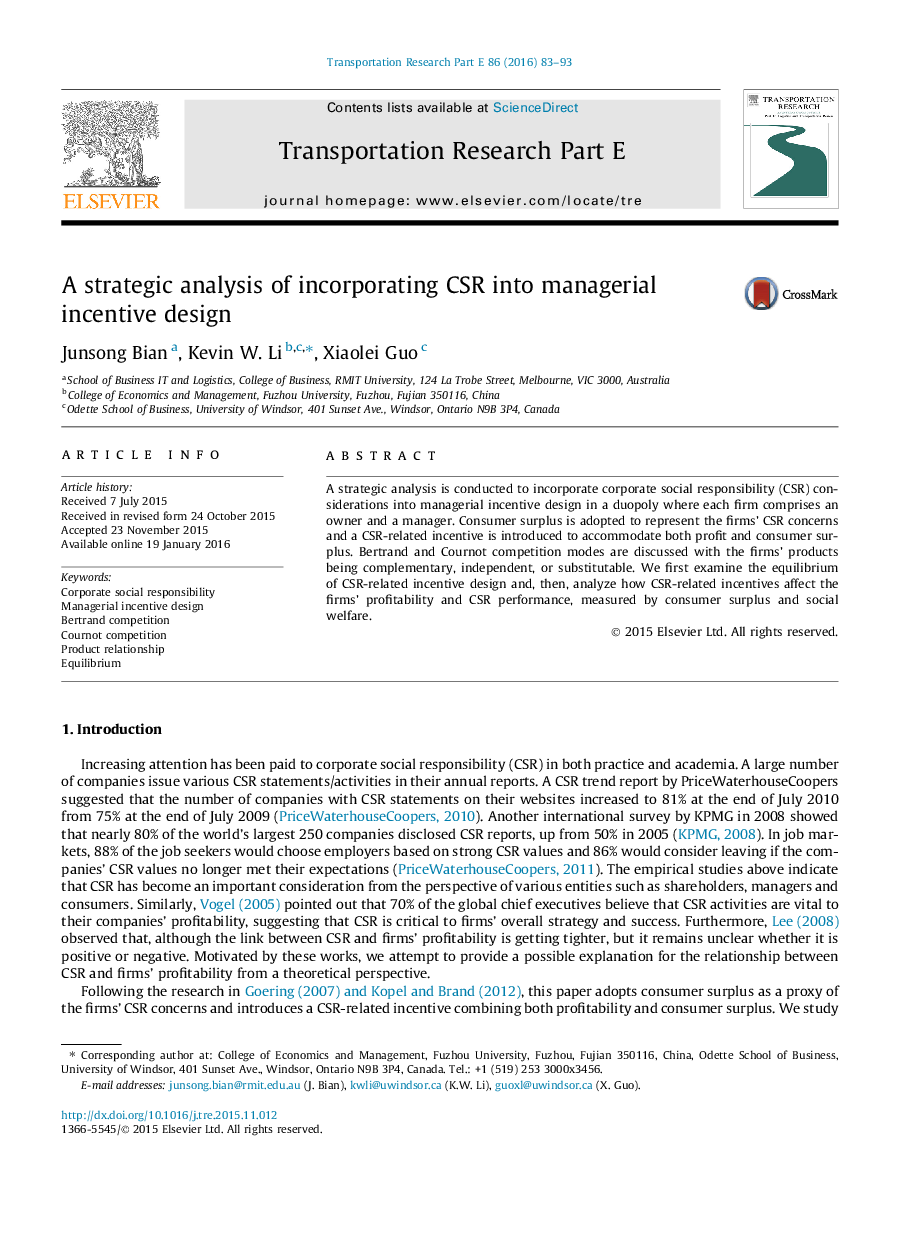| Article ID | Journal | Published Year | Pages | File Type |
|---|---|---|---|---|
| 1023010 | Transportation Research Part E: Logistics and Transportation Review | 2016 | 11 Pages |
•Corporate social responsibility (CSR) is considered in managerial incentive design.•Two classical market competition modes, Bertrand and Cournot, are examined.•Both owners employ CSR-related incentives in equilibrium if products are correlated.•Both competition mode and product relationship affect profitability.•The competition mode alone impacts consumer surplus and social welfare.
A strategic analysis is conducted to incorporate corporate social responsibility (CSR) considerations into managerial incentive design in a duopoly where each firm comprises an owner and a manager. Consumer surplus is adopted to represent the firms’ CSR concerns and a CSR-related incentive is introduced to accommodate both profit and consumer surplus. Bertrand and Cournot competition modes are discussed with the firms’ products being complementary, independent, or substitutable. We first examine the equilibrium of CSR-related incentive design and, then, analyze how CSR-related incentives affect the firms’ profitability and CSR performance, measured by consumer surplus and social welfare.
